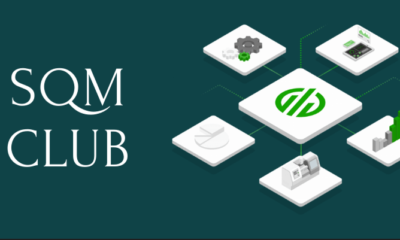Welcome to the world of foot and ankle orthotics, a landscape filled with numerous possibilities and options. But, how do you traverse this domain intelligently, ensuring you select the perfect supportive device for your needs? Is it a simple matter of one size fits all, or are there specific considerations you need to take into account?
In today’s post, we will delve into the intricate world of foot ankle orthotics, unravelling the complexities associated with choosing the most appropriate orthotic device. From understanding the basics of these orthotic tools to exploring their varied designs, from comprehending their materials to perceiving when it’s the right time to use them, we’ll answer all your pertinent questions, providing you with a comprehensive guide.
So, whether you’re a first-time buyer seeking clarification or a seasoned user desiring to expand your knowledge, there’s something for everyone. Join us as we embark on this enlightening journey into the fascinating sphere of foot and ankle orthotics.

A Primer on Foot & Ankle Orthotics
Orthotics are medical devices designed to correct, support, or improve the function of various body parts. When we talk about foot ankle orthotics, we’re referring to supportive devices specifically tailored for issues related to the feet and lower extremities. They are extensively used to provide relief from pain, offer support for ligaments and tendons, and rectify issues associated with alignment and mobility.
Orthotics can range from the simple insertion of a cushioned insole or heel cup to a more complex brace-like structure for more severe conditions. The choice is myriad, and understanding the intricacy behind each one is essential in making the right selection.
Modern medical advances have further diversified the types of materials utilized in manufacturing orthotics. The materials range from flexible polymer compounds to rigid metals, each with its unique attributes catering to different needs and afflictions.
Decoding the Types of Foot & Ankle Orthotics
Deciphering the types of foot ankle orthotics can almost feel like learning a new language. However, having a clear understanding of the main categories can aid in simplifying the process and guiding you towards an informed choice.
In broad strokes, orthotic devices fall under two categories – Functional/ Intrinsic and Accommodative/Extrinsic. Functional orthotics are primarily designed to control abnormal motion, providing stability and balance to your foot and ankle. On the other hand, accommodative orthotics offer comfort and relief by providing additional cushioning and support.
Delving further into these categories, we find sub-categories specializing in catering to specific foot conditions. This includes heel inserts, insoles, arch supports, and ankle braces, each aimed at addressing a unique concern or condition.
Criteria for Choosing Your Foot Ankle Orthotics
The process of selecting the correct foot and ankle orthotic is multifaceted. It involves understanding your foot type, identifying your specific need or affliction, and recognizing the frequency and intensity of use.
Remember, incorrectly fitted orthotics can lead to discomfort, exacerbation of symptoms, and overall dissatisfaction. Therefore, it’s essential to consult a professional who can conduct a thorough foot examination, understand your lifestyle needs, and recommend an appropriate course of action.
The Pros and Cons of Using Orthotics
foot ankle orthotics offer immense benefits, including pain relief, enhanced mobility, greater comfort, and a higher quality of life. They can transform lives, making everyday tasks easier and more manageable.
However, they also come with their own set of drawbacks. For some, the expenses connected with these devices may seem hefty. Others may find adjusting to an orthotic appliance challenging. A one-size-fits-all mentality can lead to inadequately fitting orthotics, causing more harm than good.
Foot and Ankle Orthotics Maintenance and Care
Once you’ve selected your perfect orthotics, it’s crucial to maintain them properly to extend their lifespan and ensure they continue to provide optimal support. The maintenance and care required would depend on the type of orthotic, its materials, and intensity of use.
In the long run, your foot health is in your hands, and a little extra care and attention can go a long way in ensuring ongoing comfort and functionality.
Final Thoughts: Stepping into Comfort with the Perfect Orthotics
Whew! We’ve navigated the vast landscape of foot ankle orthotics, addressing critical inflection points along the way. You now have a comprehensive understanding of the types, considerations and selection criteria for the right foot and ankle orthotic.
In conclusion, there’s no denying the potentially life-changing impact of these unassuming devices. However, it’s equally important to realize that choosing the right orthotic is not simply a matter of aesthetics, price, or brand name. It involves a holistic understanding of your specific conditions, lifestyle requirements, and professional consultation.
So place your foot forward, stride with confidence, knowing that armed with the right information, you can empower your journey towards enhanced comfort and mobility. Remember, the journey of a thousand miles begins with a single step, or in this case, the perfect foot and ankle orthotic.

 Business2 years ago
Business2 years ago
 Tips & Tricks2 years ago
Tips & Tricks2 years ago
 Law2 years ago
Law2 years ago
 Technology2 years ago
Technology2 years ago
 Business2 years ago
Business2 years ago
 Business1 year ago
Business1 year ago
 Lifestyle2 years ago
Lifestyle2 years ago
 Technology2 years ago
Technology2 years ago








